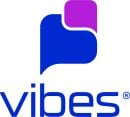Salespeople working in tech do their jobs a little differently than salespeople in other industries. Instead of simply promoting a product and its features, tech sales is often focused on helping clients articulate and solve particular problems. This kind of work requires longer-term relationships built on trust, and building trust takes time and intention.
Melissa Nimry, director of sales at Vibes says this is one of the most difficult parts of a tech salesperson’s work: “There’s no question that establishing credibility and trust with prospective customers is one of the hardest stages in the sales process,” she told Built In.
David Yarbrough, enterprise account executive at Logiwa, agrees: “Credibility takes time and needs to be done in a respectful way.”
But how do tech sales pros go about establishing trust and credibility with potential buyers in respectful ways? Built In Chicago sat down with sales leaders from four companies to hear their tips. The advice they shared ranged from purpose-driven emailing to getting past the gatekeepers to talking with decision-makers, and all of it centers on respecting the client’s context in order to help them solve pressing problems.
Adage Technologies builds innovative and effective digital solutions to help clients enhance user experiences and achieve their business goals.
Beyond sharing big logos, what should B2B tech sales professionals do when establishing credibility with potential customers who aren't familiar with your company?
To establish credibility with a potential customer, B2B tech sales professionals should research past similar work and identify examples of specific problems that were addressed. Then the salesperson can describe how the company developed a personalized project plan to tackle the most important issues.
It is helpful to talk through some specific solutions for the client before making a formal pitch to show understanding of the prospect's needs. The sales professional can share the experience and credentials of their team to demonstrate knowledge of the vertical and potential solutions.
In your opinion, what should B2B tech sales professionals not do in an attempt to establish credibility with potential customers?
Talking too much about your company's accomplishments instead of hearing the prospect's specific needs is a mistake. Spend more time listening than talking. It is important to learn as much as possible about a potential customer before providing a proposal, so you can avoid presenting solutions beyond the customer's needs.
Spend more time listening than talking.”
It is tempting to only provide references from large, well-known clients, but that can intimidate smaller clients. They may get the impression that your company only seeks certain kinds of customers if you're too narrow in the examples provided.
Also, I don’t recommend that sales proposals include too much technical language, unless specifically requested. Decision makers are likely very busy and must get to the bottom line quickly.
Are there any key signs you look for to determine if you need to further establish credibility with a customer?
The questions a customer asks are a good indication of whether you need to do more to establish credibility. If you're being asked if your company can handle a project as large and complex as theirs (or, alternately, small and straightforward), you have some work to do to establish that you're the right company for the job.
Halo is a technology platform that connects financial advisors and investors to protective investment products – including structured notes, buffered ETFs, and annuities – offered by leading global financial institutions.
Beyond sharing big logos, what should B2B tech sales professionals do when establishing credibility with potential customers who aren't familiar with your company?
As an early sales leader at my firm, which was then a startup that no one had ever heard of, this is indeed familiar territory. I realize it sounds obvious, but tech credibility is paramount in these transactions.
At Halo, we seek to find the actual evaluator of the service, instead of the figurehead or gatekeeper, and put our head of product in a room with the evaluator. Getting past the gatekeeper to the user of the technology and architect of the client's tech ecosystem is critical to establishing credibility.
Getting past the gatekeeper to the user of the technology and architect of the client's tech ecosystem is critical to establishing credibility.”
I also find that the consistency a salesperson shows in the sales process is key to demonstrating credibility. Letting people know when you're going to follow up and then doing so is the best way to show that you and your firm will do what you say you will-- simple as that.
In your opinion, what should B2B tech sales professionals not do in an attempt to establish credibility with potential customers?
An attempt to do the trust-building without the follow up is kryptonite to a deal.he inability to read and ask for a client's timeline can also be catastrophic to a deal.
Are there any key signs you look for to determine if you need to further establish credibility with a customer?
If a client delays a deal or has a lack of ownership for their side of the agreement, that is a signal to us that they haven't fully established credibility with our firm and our sales folks. This is a direct tell that the relationship needs more credibility, so that the salesperson can hold the client accountable as well. It's a two way street, after all.
Logiwa delivers cloud fulfillment software for direct-to-consumer businesses.
Beyond sharing big logos, what should B2B tech sales professionals do when establishing credibility with potential customers who aren't familiar with your company?
In my opinion, one of the biggest mistakes salespeople make is trying to sell the customer too early in the sales process. The first couple of meetings are usually credibility meetings on both sides of the fence.
This means both parties are sizing up the other in an attempt to establish whether or not they want to do business together. I always try to phrase questions around what we have done as a company and relate those back to the customer in an attempt to disarm the prospect.
These questions might be, "we have heard from other customers that they are struggling with XYZ in their operation, is that something that you struggle with as well?" Or, "we have been able to solve XYZ for our customers creating XYZ value, if you have these issues and we can do the same for you, does it make sense for us to dive further?"
I want the customer to leave the call thinking "wow, this guy really gets me and understands the industry." This allows them to share more with me in an attempt to get more help since they now view me as a trusted advisor and not just a salesperson. This also allows the customer to know the type of company they will be dealing with moving forward.
In your opinion, what should B2B tech sales professionals not do in an attempt to establish credibility with potential customers?
Customers don't want to be told how great your product is before you even know what they are trying to do. Imagine if your HVAC professional came to your house and the first thing they said is you need a new unit. No one would buy that, and tech companies won't either.
If a company has been around for some time, there is a lot of pride in what they have developed. The last thing any sales professional wants to do is tear that down.
Never look at a process and assume it to be silly or stupid. Someone created that, and there might have been a reason for it.
Never look at a process and assume it to be silly or stupid. Someone created that, and there might have been a reason for it.”
Credibility takes time and needs to be done in a respectful way. Companies will know you from the first meeting based on the way you act and the type of interactions you have.
All sales reps should try to be credible, meaning the prospect should think of you even if they don't buy from you. That is how you will know if you’ve left a positive impression with someone, which is the best way to determine how credible you are.
Are there any key signs you look for to determine if you need to further establish credibility with a customer?
I can usually tell by the type of questions a prospect asks or what information they withhold. If the prospect thinks you are not credible, they will not let you into their inner thoughts.
Inside every deal, there are inside and outside factors that drive a decision. Until you’ve established full credibility, you will only get the outside factors. These are not what will win the deal, though they will help.
The inside factors are the ones that will drive the decision towards or away from your specific solution. These are the little buying secrets that the buyer only tells reps they believe to be credible, such as past decisions and their impact on the operation, or how a certain person will react.
Vibes’ mobile engagement platform gives marketers, e-commerce professionals, loyalty specialists and data technologists the tools to acquire, engage, service and retain customers.
Beyond sharing big logos, what should B2B tech sales professionals do when establishing credibility with potential customers who aren't familiar with your company?
What I’ve found to be the best way to make headway with the buyer is to continue throughout the entire sales process to be 100% focused on the solution at hand. What are they really trying to solve?
This is not an “aha!” if you’re in or have been in a sales role. However, it is easier said than done.
Many of us start out strong in the discovery phase of our sales cycle, asking a lot of questions, letting the buyer do the talking, seeking to understand their problems and “what keeps them up at night” and so on.
Don’t lose this empathy. It’s incredibly important that these things do not take a backseat once pricing and contracts come into the picture.
In your opinion, what should B2B tech sales professionals not do in an attempt to establish credibility with potential customers?
There is a lot we shouldn’t do. But my short list of DO NOT DO items would be:
- Don’t endlessly talk about what you’re doing with their biggest competitor(s).
- Don’t talk about how much other brands are spending with your company.
- Don’t continue to push them on products or services that they’ve already been clear they aren’t interested in (a little push can be fine if and only if it has strategic rationale for their use case, but know the limit).
- Don’t schedule a meeting or send an email just to check-in. Every interaction should serve a purpose and be in the buyer’s best interest, so make sure to aim for all meetings and emails to have a positive and meaningful impact on their day, not yours.
Every interaction should serve a purpose and be in the buyer’s best interest, so make sure to aim for all meetings and emails to have a positive and meaningful impact on their day, not yours.”
Are there any key signs you look for to determine if you need to further establish credibility with a customer?
You don’t want things to get quiet. If the buyer isn't in regular communication with you, then they probably don't yet see you as a person who will help them solve their problems and reach their goals.
If a buyer isn’t responding to my emails, that tells me I'm not a priority. On the other hand, if we have open communication via email, text or phone, then I know this person values the relationship and what we are trying to help them do.












